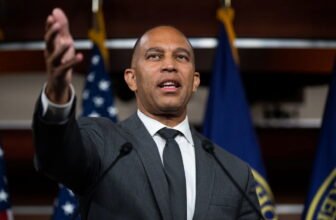
July 2, 2025
Hundreds of thousands of U.S. workers are set to see pay increases starting July 1.
On July 1, 15 states and cities nationwide were expected to implement minimum wage increases.
More than 800,000 workers in Alaska, Oregon, and Washington, D.C. are set to receive higher wages, along with employees in 10 cities and counties across California, Newsweek reports. Taking inflation into account, the upcoming wage increases could boost annual earnings by as much as $925 in some areas.
“These minimum wage increases will put more money in workers’ pockets, helping many of them and their families make ends meet,” Economic Policy Institute state economic analyst Sebastian Martinez Hickey said.
“The average increase in annual wages for a full-time, year-round worker resulting from these minimum wage hikes ranges from $420 in Oregon to $925 in Alaska.”
In the minimum pay wage is set to increase by $1.09 to $13.00 an hour, affecting an estimated 19,400 workers, roughly 6.3% of the state’s workforce, and adding an average of $925 to their annual income, according to EPI.
In Washington, D.C., the minimum wage will increase by 45 cents to $17.95 an hour, driven by an automatic inflation adjustment. The change is expected to impact around 62,200 workers and add $727 to their annual earnings.
In Oregon, approximately 801,700 workers, 9.4% of the state’s workforce, will see their minimum pay rise by 35 cents to $15.05 an hour, thanks to an inflation-based adjustment. On average, each worker will earn an additional $420 per year.
Cities and counties across California are implementing minimum wage increases ranging from 45 to 59 cents per hour. New hourly rates will span from approximately $17.46 in Alameda to nearly $20 in Emeryville, one of the highest in the nation. In Berkeley and San Francisco, wages will rise to $19.18 an hour, while workers in Los Angeles and nearby areas will earn just under $18.
Elsewhere, Chicago will raise its minimum wage by 40 cents to $16.60 an hour, while Montgomery County in Maryland will see a 50-cent increase, bringing the rate to $17.65 an hour.
These changes come amid ongoing calls to raise the federal minimum pay. Recently, Republican Senator Josh Hawley of Missouri and Democratic Senator Peter Welch of Vermont introduced a bipartisan bill to increase the federal minimum wage to $15 an hour, more than double the current rate. Meanwhile, employers in the 15 states implementing wage hikes must review the varying city-specific minimum rates and adjust employee pay accordingly.
RELATED CONTENT: Aldi Set To Hire 13,000 Holiday Workers With Wages Up To $23 An Hour






